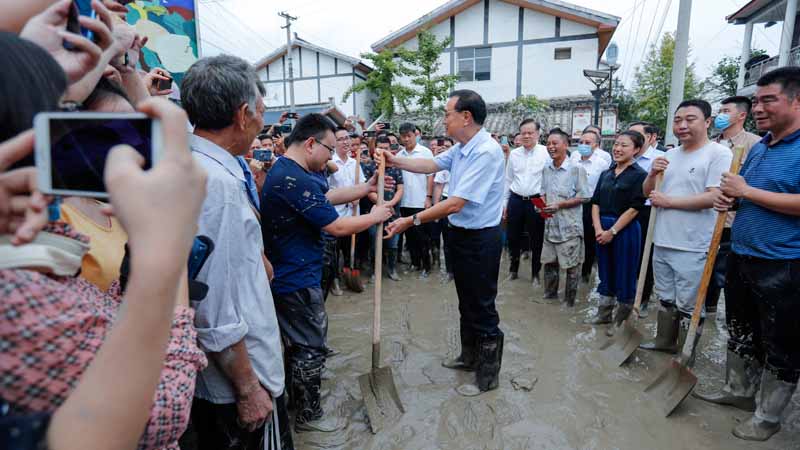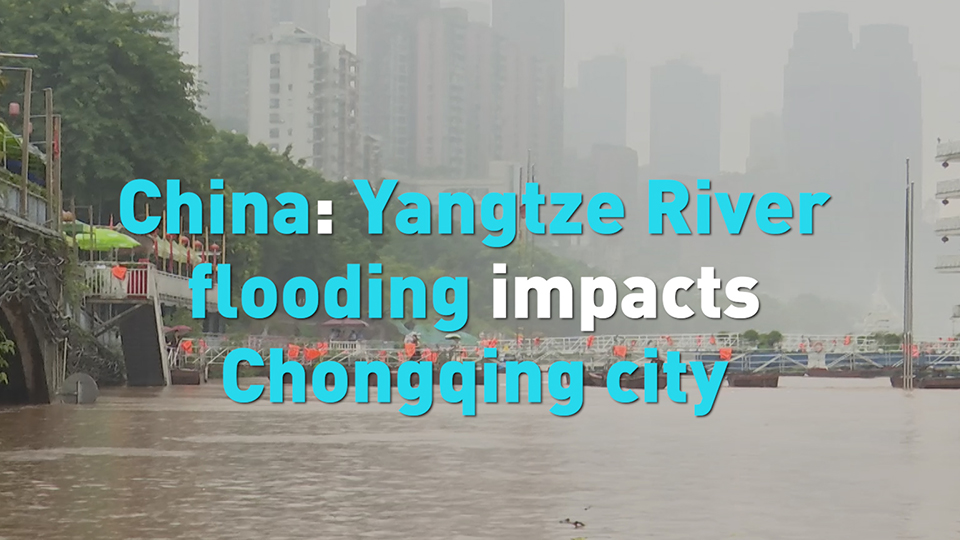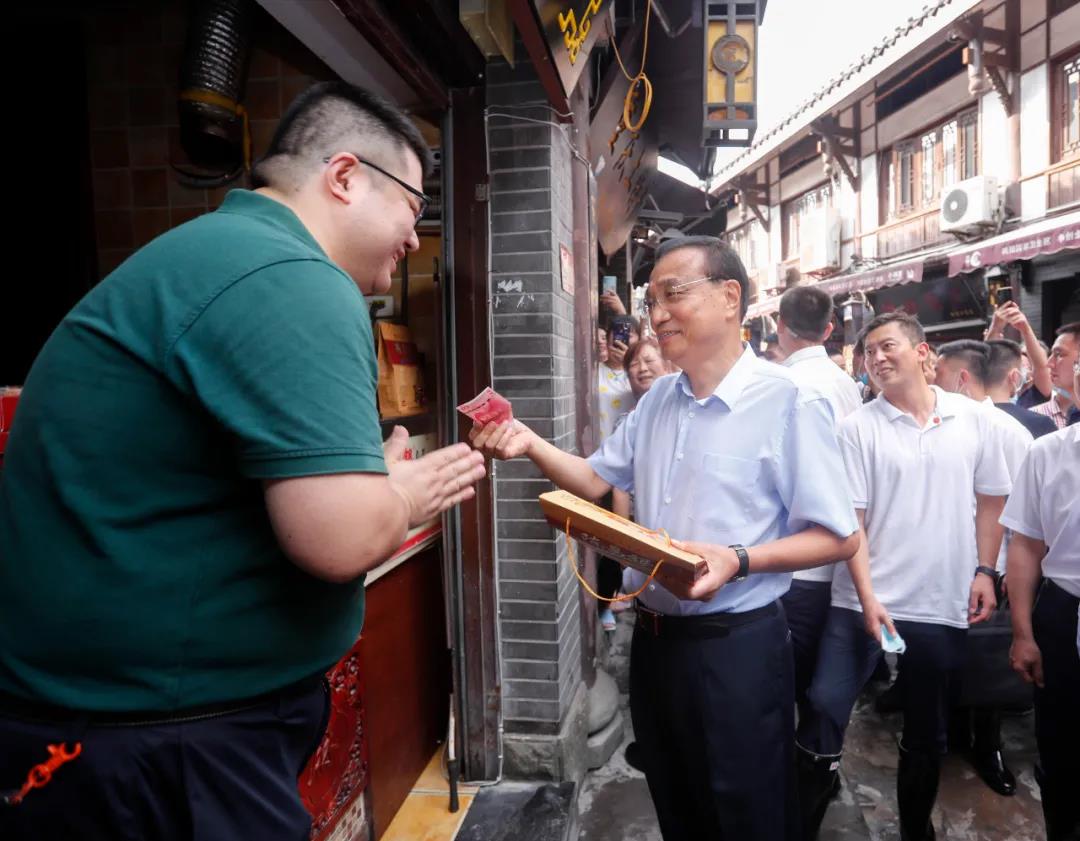00:50

Chinese Premier Li Keqiang vowed economic relief to small businesses hit by flood in Chongqing after the megacity braced for record flood.
Premier Li arrived in Chongqing on Thursday morning to evaluate conditions in the flood-stricken Shuangba Village in Tongnan District, where more than 8,000 people have been affected.
The Party and the government will assist everyone in this hard time, the premier told locals, according to official news release. "Everyone needs to fight this disaster hand in hand. Having no casualties will be our biggest victory," he said.
The premier called on people to work together as a "family" to rebuild the village.
Torrential rains have caused massive flooding along the Yangtze River. Chongqing, home to roughly 18 million people, saw water levels rise up to 7.3 meters above the safety line after intense rainfall upstream.
For the first time, authorities issued Level-I flood emergency response on August 18, the highest in the four-tier emergency response system for floods.
01:03

Later on the day, Li went to Ciqikou, a busy commercial and tourist spot that was hard-hit in the flood, and talked with local businessmen. He said the government will provide more support to help revive local businesses.

Chinese Premier Li Keqiang buys snacks at Ciqikou, a busy commercial center in Chongqing, after flood hit the city, August 20, 2020. /China's State Council
Chinese Premier Li Keqiang buys snacks at Ciqikou, a busy commercial center in Chongqing, after flood hit the city, August 20, 2020. /China's State Council
On August 18, the Ministry of Finance and Ministry of Emergency Management allocated 460 million yuan (around 66.6 million U.S. dollars) to four provincial-level regions, including Sichuan, Shaanxi, Gansu, and Chongqing, as part of the disaster relief effort.
(Cover: Chinese Premier Li Keqiang (C) visits flood-hit Chongqing Municipality, southwestern China, August 20, 2020. /China's State Council)